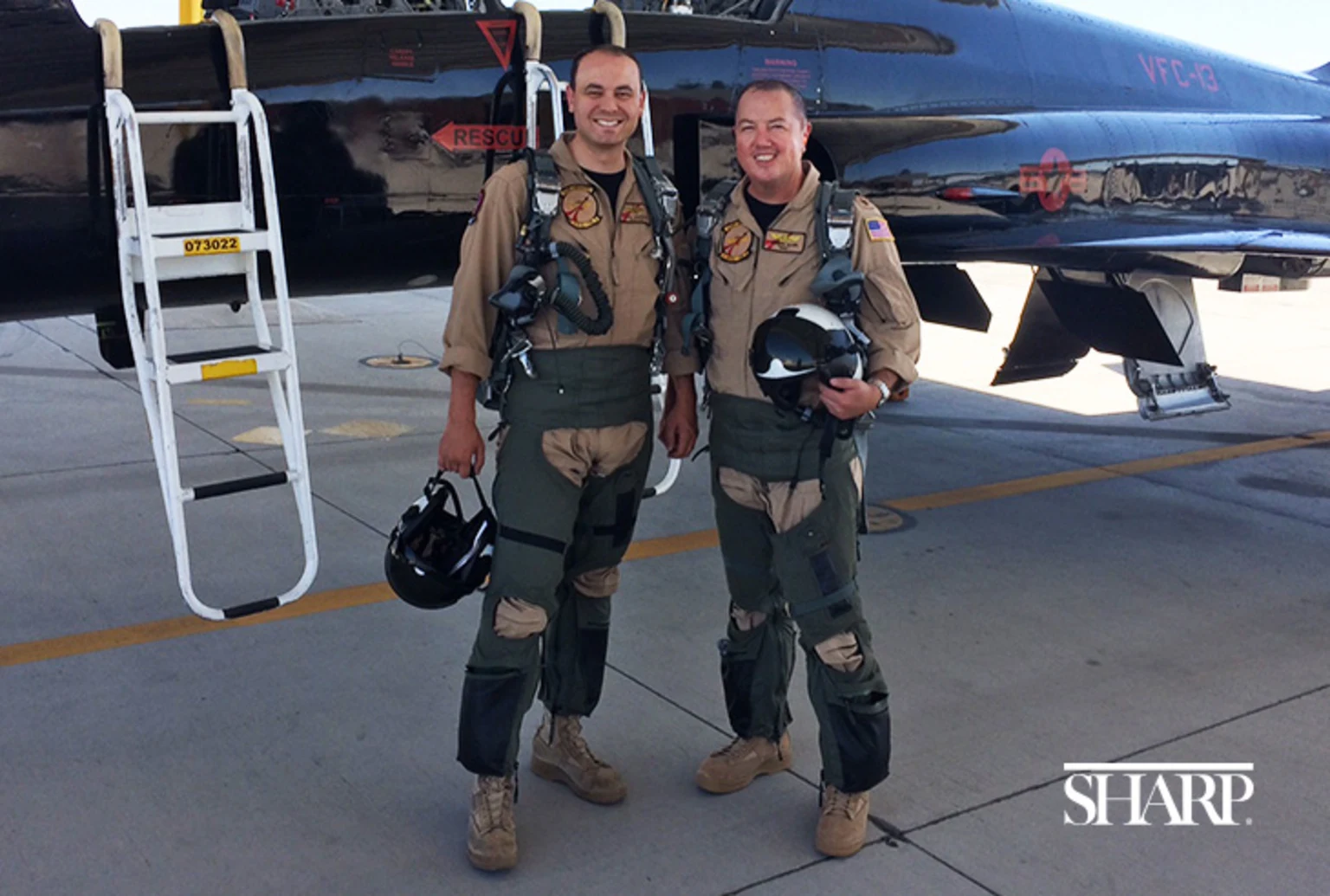
6 tips for getting health insurance for the first time
Turning 26? Here’s what to know about getting your own health insurance plan.
The COVID-19 pandemic has taken its toll on the San Diego community - drastically changing the way we live, work and relate to one another. For San Diego's military members and their families, the pandemic has been equally as challenging - if not more.
"The military footprint of San Diego is enormous," says Dr. Joseph Allen, a board-certified family medicine doctor affiliated with Sharp Community Medical Group. "When you add in the families that are stationed here, and the jobs that support military operations, this pandemic has impacted such a big segment of our city."
Dr. Allen, who works specifically with tactical pilots as a commander and Navy Reserve flight surgeon - with the VFC-13 Saints tactical adversary fighter squadron at TOPGUN, NAS Fallon - has seen firsthand how COVID-19 is making its mark. While exposure rates have been similar to those seen in the general population, accurate and timely diagnostic testing has kicked off a series of challenges in both treating patients and keeping military operations on track.
"This has definitely slowed down our training tempo," Dr. Allen says. "While it's not excessive, we have had pilots test COVID-positive, resulting in having to track down their contacts and fellow pilots. Despite the hurdles though, we've adapted. We've filled in the gaps where necessary, and continue to do our jobs."
A series of extra precautions
Like the general population here in San Diego, the military community adheres to standard guidelines to help contain the virus. This means wearing face coverings, maintaining a social distance of at least 6 feet, frequently washing hands, and isolating when exposed or showing symptoms.
Additionally, standard operating procedures have been set specifically for members of the military, including screening questionnaires, standardized testing, return-to-work protocols, exposure data collection and reporting, and Navy-wide updates and data summaries.
"You'll see a lot of the same precautions on our bases that you see in the civilian community," Dr. Allen says. "Yet in terms of operations, extra precautions are both necessary and frustrating for members of the military."
Protocols have delayed some deployments, as well as forced permanent change of station for some new arrivals. While temperature checks are required when entering military installations or workspaces, many activities, such as some trainings, have been relegated to at home only - restricting interactions and slowing the usual quick pace that the military has become accustomed.
To do his part, Dr. Allen works tirelessly to help his military patients stay healthy - and if they need it, get the care they need quickly.

Dr. Joseph Allen (right) works with tactical pilots in San Diego. He is pictured with CDR David "Martian" Anderson.
"Considering how COVID is curtailing work life on our bases, the last thing a military member needs is to catch the virus," he says. "But if they do, I try to help coordinate their care as quickly as possible. It's my job to provide medical guidance and issue return statuses, as well as reporting medical data to the upper echelon of Commands. And the sooner I can get my patients tested and recovering, the lower the odds of the virus spreading."
Supporting family life
The families who support their military loved ones are not spared of the virus's direct and indirect effects. As cases increase in San Diego, military families are also getting sick - forcing them into quarantine or worse, into medical facilities.
Yet the unspoken tragedy of COVID-19 for military families is its mental health impact. "We're all feeling the pressure caused by the pandemic," Dr. Allen says. "But imagine the extra isolation you feel when you're forced inside, with limited interaction, and San Diego isn't home for you. There's no easy way to connect when you're feeling alone in a new place."
Another mental hardship is the abrupt change in a family's routine. Delayed deployments and restrictions on travel and workspaces mean military members are home, affecting the family dynamic.
"The men and women in our military enjoy home time as much as anyone, but they are also incredibly passionate about going out and playing their important role in protecting our country," Dr. Allen says. "There are definitely some things they can do from home, such as training, but for a group of people who are used to an active work life, adjusting to long periods at home can be challenging."
On the opposite side of the spectrum, some who
are deployed are experiencing delays getting home. Families and loved ones are having to face longer than usual stretches apart. To help address hardships, the military offers mental health clinics, medical centers and chaplain services. Yet access to these avenues isn't always easy or effective.
"It's a tough time for our military," Dr. Allen says. "As a doctor, and speaking for other military doctors, we work to make ourselves available to service members and their families. There's a light at the end of the tunnel, and we'll all get through this. Because if there's one thing I've learned from my time with this unique community, it's that they're strong, they're determined, and they won't let something like COVID-19 keep them down."

Our weekly email brings you the latest health tips, recipes and stories.